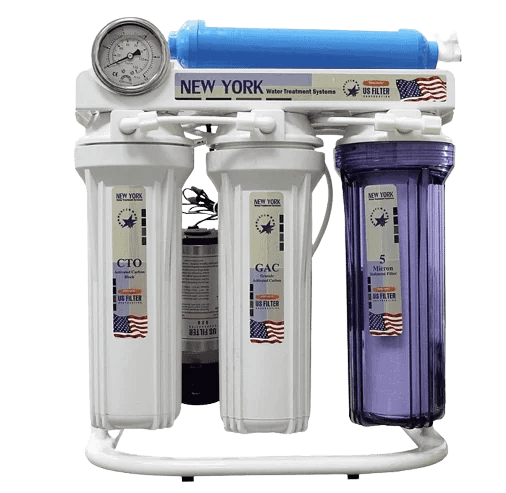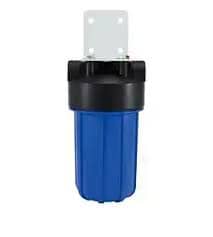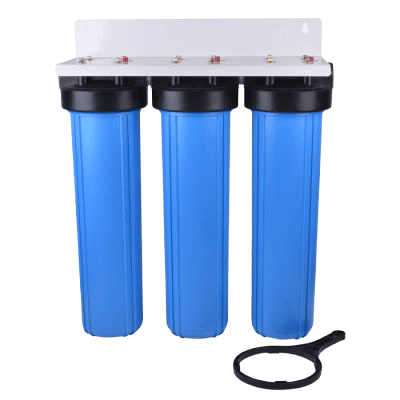Description
Best Water Purifier 6 Stages in Jumeirah Beach Residence
Water is essential for life, but not all water is safe to drink. That is why having a water purifier in your home is so important. Water purifiers filter out harmful contaminants, ensuring that the water you drink is clean and safe. But with so many water purifiers on the market, how do you know which one to choose? In this ultimate guide to water purifiers, we will cover everything you need to know to mak need a water purifier?
There are many reasons why you need a water purifier. Here are just a few:
- Tap water contains contaminants such as chlorine, lead, and bacteria that can be harmful to your health.
- Bottled water is expensive and has a negative impact on the environment.
- Water purifiers are cost-effective and provide clean and safe water at your convenience.
What are the different types of water purifiers?
There are several types of water purifiers available, each with its own unique features and benefits.
1. Reverse Osmosis (RO) Water Purifiers
RO water purifiers use a semipermeable membrane to remove impurities from water. They are effective at removing contaminants such as lead, arsenic, and fluoride.
2. Ultraviolet (UV) Water Purifiers
UV water purifiers use ultraviolet radiation to kill bacteria and viruses in water. They are effective at removing harmful microorganisms but do not remove other contaminants such as heavy metals.
3. Activated Carbon Water Purifiers
Activated carbon water purifiers use activated carbon to filter out impurities from water. They are effective at removing chlorine, sediment, and volatile organic compounds (VOCs).
4. Gravity-based Water Purifiers
Gravity-based water purifiers use gravity to filter out impurities from water. They are effective at removing bacteria and viruses but may not be effective at removing other contaminants.
What are the stages of water purification?
Most water purifiers use a multi-stage purification process to remove impurities from water. Here are the six stages of water purification:
1. Sediment Filter
The sediment filter removes large particles such as sand, dirt, and rust from the water.
2. Pre-Carbon Filter
The pre-carbon filter removes chlorine, volatile organic compounds (VOCs), and other organic impurities from the water.
3. RO Membrane
The RO membrane removes impurities such as lead, arsenic, fluoride, and nitrates from the water.
4. Post-Carbon Filter
The post-carbon filter removes any remaining impurities and improves the taste of the water.
5. UV Lamp
The UV lamp kills any remaining bacteria and viruses in the water.
6. Mineralizer
The mineralizer adds essential minerals such as calcium and magnesium back into the water.
What factors should you consider when choosing a water purifier?
When choosing a water purifier, there are several factors you should consider:
- Contaminants in your water
- Water usage
- Cost
- Maintenance requirements
- Installation requirements
How do you maintain a water purifier?
Maintaining your water purifier is essential to ensure that it continues to provide clean and safe water. Here are some tips for maintaining your water purifier:
- Replace the filters as recommended by the manufacturer.
- Clean the RO membrane regularly.
- Sanitize the UV lamp regularly.
- Check for leaks and replace any damaged parts.
Conclusion
Water purifiers are essential for ensuring that the water you drink is clean and safe. With so many options available, it can be challenging to know which one to choose. By
considering the factors we discussed and understanding the stages of water purification, you can make an informed decision that meets your specific needs.
Investing in a water purifier can save you money in the long run and provide you with peace of mind knowing that you are drinking clean and safe water. Whether you opt for a reverse osmosis system or a gravity-based purifier, it is crucial to choose a reliable and reputable brand that provides quality products and excellent customer service.
FAQs
- Can water purifiers remove all contaminants from water?
Water purifiers can remove most contaminants, but some may require additional treatment, such as distillation or ion exchange.
- Is it necessary to have a water purifier if you drink bottled water?
Bottled water is not always safe or clean, and it is also expensive and harmful to the environment. Investing in a water purifier is a cost-effective and eco-friendly alternative.
- How often should I replace the filters in my water purifier?
The frequency of filter replacement depends on the type of purifier and your water usage. Generally, filters should be replaced every six months to a year.
- Can water purifiers remove fluoride from water?
Reverse osmosis water purifiers are effective at removing fluoride from water.
- Can a water purifier add minerals back into the water?
Some water purifiers, such as mineralizers, can add essential minerals back into the water, improving its taste and health benefits








Aqua Filter –
I was impressed with Aquaafilter.com’s professionalism and expertise. They installed my water filter quickly and effectively.